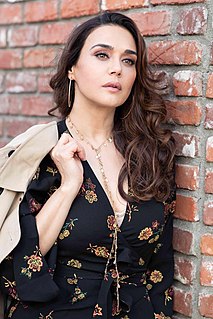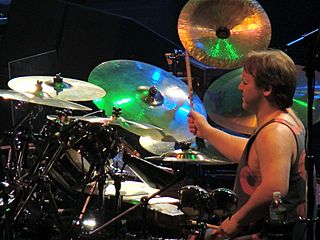A Quote by Shriya Saran
When a filmmaker like Deepa Mehta felt that I should work with her, I took up her offer.
Related Quotes
I missed the sound of her shuffling her homework while I listened to music on her bed. I missed the cold of her feet against my legs when she climbed into bed. I missed the shape of her shadow where it fell across the page of my book. I missed the smell of her hair and the sound of her breath and my Rilke on her nightstand and her wet towel thrown over the back of her desk chair. It felt like I should be sated after having a whole day with her, but it just made me miss her more.
She looked at the crowd and she felt simultaneously astonishment that they should stare at her when this event was so personally her own that no communication about it was possible and a sense of fitness that they should be here that they should want to see it. Because the sight of an achievement was the greatest gift a human being could offer to others.
He took her by the shoulders and pulled her closer to him, his fingers knotting in the fabric of her dress. Even more than in the attic, she felt caught in the eddy of a powerful wave that threatened to pull her over and under, to crush and break her, to wear her down to softness as the sea might wear down a piece of glass.
No," he said calmly, filled with purpose. he took her arms lightly in his hands and shook her. "I am not giving you up." Emily looked at him, and for just a moment he could read her thoughts. Melanie use to say they were like twins, with their own secret, silent language. in that instant, Chris felt her fear and her resignation, and the knotty pain of coming up against a brick wall again and again. She glanced away, and he could breathe again. "The thing is, Chris" Emily said, "it's not your choice.
In People magazine, Madonna said her life has been exhausting since she started her world tour. She said there isn't a second of her life that isn't taken up looking after her family or thinking of her show - her day is filled with problems of work and family. Someone should tell her, everyone else calls that, life.
She followed the pleasure where it led. She had no weight, no name, no thoughts, no history. Then came a burst of phosphorescence, as though a firework had discharged behind her eyes, and it was over. She felt quiet and warm. For the first conscious moment of her life, her mind was free from wonder, free from worry, free from work or puzzlement. Then, from the middle of that marvelous furred stillness, a thought took shape, took hold, took over. I shall have to do this again.
Blue stretched her hand out. Adam took it without hesitation, like he'd been waiting for her to offer it. He said in a low voice, just for her, "My heart is beating like crazy right now." Strangely enough, it was not his fingers twined in hers that affected Blue the strongest, it was where his warm wrist pressed against hers above their hands.
In those days, I didn't understand anything. I should have judged her according to her actions, not her words. She perfumed my planet and lit up my life. I should never have run away! I ought to have realized the tenderness underlying her silly pretensions. Flowers are so contadictory! But I was too young to know how to love her.
She expected the pain, when it came. But she gasped at its sharpness; it was not like any pain she had felt before. He kissed her and slowed and would have stopped. But she laughed, and said that this one time she would consent to hurt, and bleed, at his touch. He smiled into her neck and kissed her again and she moved with him through the pain. The pain became a warmth that grew. Grew, and stopped her breath. And took her breath and her pain and her mind away from her body, so that there was nothing but her body and his body and the light and fire they made together.



































